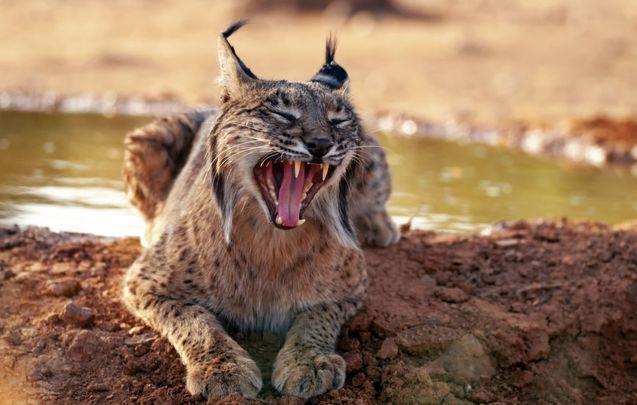An academic study based in part in Ireland has suggested reintroducing the lynx into Ireland and the rest of Europe to keep an invasive species of deer in check.
Restoring native predators could provide a solution to a variety of the most damaging invasive species globally, according to a joint study from Queen's University Belfast and Cornell University in the US which published in Global Change Biology on June 16.
Lead author of the report Dr. Joshua Twining from the Queen's School of Biological Sciences said: “In a modern world that is daunted by environmental crisis and ecological collapse, it is more important than ever to realise the potential of restoring native predators to ecosystems from which they have been previously lost.
"This applies globally but is especially applicable in Britain and Ireland where we have persecuted all our large-bodied predators into extinction with no natural means of recovery.”
One example in the study shows how re-introducing the native lynx could help to manage one of the most damaging invasive species to the environment in Europe, the sika deer, which are considered a pest as they graze on crops and “ring” trees, stripping the bark from the base and causing the tree to die. They are also thought to contribute to the spread of diseases such as bovine and avian TB.
The new research provides strong evidence that the lynx could impact sika deer populations in Britain and Ireland. It also shows how the lynx and wolf recovery in Europe could limit raccoon dogs below the threshold for rabies persistence, which remains a huge threat to human and animal health.
According to the study, the evolutionary naivety of invasive species to native predators, coupled with a lack of spatial refuges from predation, could underpin the abilities of native predators to provide effective control of certain established invasive species.
"Our work demonstrates the plausibility of a nature-based approach to the control of certain invasive species around the world," Twinning said.
"Native predator restoration can provide effective solutions to some of the most damaging of invasive species and thus buffer our natural systems against some of the worst of human impacts."




Comments